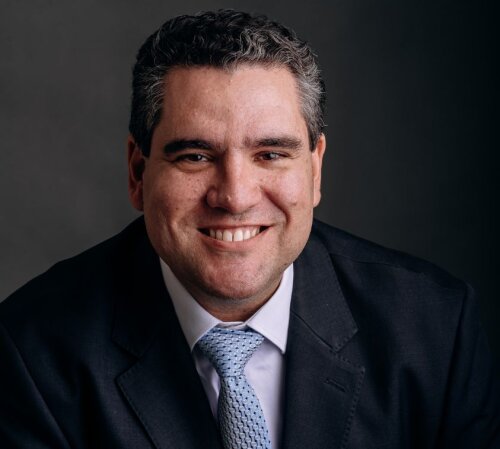Best Child Custody Lawyers in Brazil
Share your needs with us, get contacted by law firms.
Free. Takes 2 min.
Free Guide to Hiring a Family Lawyer
Or refine your search by selecting a city:
List of the best lawyers in Brazil
About Child Custody Law in Brazil
Child custody in Brazil is governed by the Civil Code, which aims to protect the well-being of the child primarily. The legal framework emphasizes the principle of the best interest of the child, considering their emotional, psychological, and social needs. Custody arrangements can be established during the divorce or separation of parents, or if the child's parents were never married but are separating. Joint custody is often favored unless circumstances dictate otherwise, allowing both parents to be involved in the child's upbringing and decision-making.
Why You May Need a Lawyer
There are numerous situations where you may require legal assistance in child custody matters. These include disputes over physical or legal custody arrangements, modifications to existing custody orders, enforcement of custody agreements, situations involving child relocation, and when there are allegations of parental misconduct. Legal advice can ensure your parental rights are protected, that any custody agreement serves the best interests of the child, and that all legal procedures are correctly followed.
Local Laws Overview
In Brazil, child custody is heavily focused on the child's best interest, a guideline evident throughout the Brazilian Civil Code. Both parents are typically granted joint legal custody unless one parent is deemed unfit. The law mandates that even if one parent has physical custody, the other retains visitation rights and a say in major life decisions. Legislative changes also strive to equalize the rights and responsibilities of both parents, regardless of gender. The involvement of the judiciary may be required for custody rulings, especially in disputes.
Frequently Asked Questions
What is the difference between physical and legal custody in Brazil?
Physical custody refers to where the child lives, while legal custody involves decision-making rights concerning the child’s upbringing. Parents can share these responsibilities under joint custody agreements.
How is custody determined in Brazil?
Custody is determined by the courts based on the child's best interests, assessing factors such as each parent's ability to provide for the child and their relationship with the child.
Can custody arrangements be modified?
Yes, custody arrangements can be modified if there are significant changes in circumstances that affect the child's well-being, such as a parent's relocation or a change in their capacity to care for the child.
What if one parent wants to move to a different city or country with the child?
Relocation with a child requires the consent of the other parent or a court order. The child's best interests remain a key consideration in these decisions.
What rights do non-custodial parents have?
Non-custodial parents generally have visitation rights and still participate in important decisions regarding the child's life, unless a court decides otherwise.
What role does the child’s opinion play in custody decisions?
The court may consider a child’s preference in custody decisions, particularly if the child is of sufficient age and maturity to express a reasoned preference.
How long do custody cases usually take in Brazil?
The time a custody case takes can vary depending on its complexity, whether it is contested, and the court's schedule. Cases typically span several months.
Can grandparents or other relatives get custody?
Yes, in certain circumstances, especially if both parents are unable or unfit to care for the child, grandparents or other relatives may be granted custody.
Is mediation required in custody disputes?
Mediation is encouraged in Brazil to help parents reach amicable agreements without going to trial, although it's not mandatory.
What should I do if a custody order is violated?
If a custody order is violated, you may file a complaint with the court, which can enforce the order and impose penalties on the non-compliant parent.
Additional Resources
For further assistance, you might consider contacting the Brazilian Bar Association (Ordem dos Advogados do Brasil - OAB) for recommendations on legal professionals. The Conselho Tutelar is a governmental body that advocates for children's rights and can offer guidance. Additionally, family courts and legal aid organizations can provide resources and support throughout child custody proceedings.
Next Steps
If you require legal assistance with child custody in Brazil, it is advisable to consult with a lawyer who specializes in family law. Begin by gathering all relevant documents related to your case, such as previous court orders, correspondence with the other parent, and evidence of your relationship with your child. When choosing a lawyer, consider their experience, track record in similar cases, and familiarity with Brazilian family law. Engaging with a professional can significantly impact the outcome of the custody arrangements, ensuring that they are fair and prioritize the child's welfare.
Lawzana helps you find the best lawyers and law firms in Brazil through a curated and pre-screened list of qualified legal professionals. Our platform offers rankings and detailed profiles of attorneys and law firms, allowing you to compare based on practice areas, including Child Custody, experience, and client feedback.
Each profile includes a description of the firm's areas of practice, client reviews, team members and partners, year of establishment, spoken languages, office locations, contact information, social media presence, and any published articles or resources. Most firms on our platform speak English and are experienced in both local and international legal matters.
Get a quote from top-rated law firms in Brazil — quickly, securely, and without unnecessary hassle.
Disclaimer:
The information provided on this page is for general informational purposes only and does not constitute legal advice. While we strive to ensure the accuracy and relevance of the content, legal information may change over time, and interpretations of the law can vary. You should always consult with a qualified legal professional for advice specific to your situation.
We disclaim all liability for actions taken or not taken based on the content of this page. If you believe any information is incorrect or outdated, please contact us, and we will review and update it where appropriate.
Browse child custody law firms by city in Brazil
Refine your search by selecting a city.

















